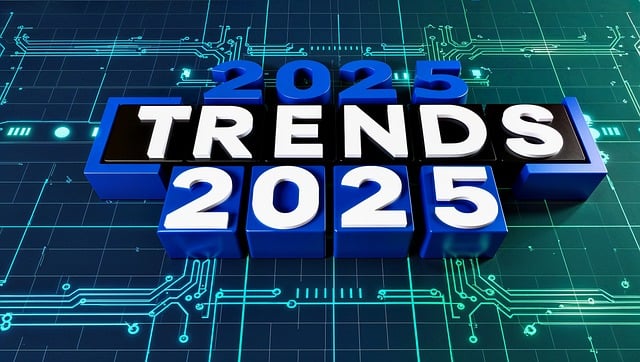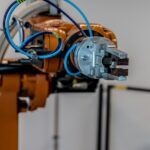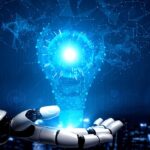Introduction
Artificial Intelligence (AI) is advancing at an unprecedented pace and is set to become a fundamental part of our daily lives by 2025. From transforming healthcare and transportation to reshaping education and tackling climate change, AI is revolutionizing industries in ways we could not have imagined just a decade ago. While AI brings countless benefits, it also introduces ethical concerns, privacy risks, and potential job displacement.
In this article, we will explore seven groundbreaking predictions for AI in 2025 and discuss how they will shape the future of various industries and society at large.
1. AI-Powered Healthcare Advancements
The healthcare industry is on the brink of a major transformation, thanks to AI. By 2025, AI-powered medical technologies will offer faster, more accurate diagnoses and treatments, revolutionizing patient care.
Early Disease Detection
AI-driven algorithms are already detecting diseases like cancer and cardiovascular conditions earlier than human doctors. By analyzing vast amounts of medical data, AI can identify patterns and anomalies in patient records, leading to early diagnosis and better treatment options.
AI-Driven Robotic Surgeries
Surgical robots powered by AI will enhance precision and reduce human errors in operations. These systems will assist surgeons by providing real-time insights and executing delicate procedures with unmatched accuracy, leading to lower risks and faster patient recovery.
Personalized Treatment Plans
AI will play a crucial role in developing personalized treatments based on genetic profiles. Machine learning models will analyze a patient’s genetic information to suggest the most effective medications and therapies, improving overall health outcomes.
2. The Rise of Autonomous Vehicles
Self-driving vehicles are becoming a reality, and by 2025, AI-powered autonomous cars will dominate roads. With continuous advancements in AI and machine learning, transportation will become safer, more efficient, and less reliant on human drivers.
Improved Traffic Management
AI will optimize traffic flow by analyzing real-time data and predicting congestion patterns. Cities will implement smart traffic systems that reduce delays, fuel consumption, and accidents.
Increased Safety on Roads
Self-driving cars will significantly reduce accidents caused by human errors such as distracted driving or fatigue. AI-powered sensors and predictive analytics will ensure better decision-making on the road.
Impact on Jobs
While autonomous vehicles offer benefits, they also pose challenges. Millions of jobs in logistics, delivery services, and ride-hailing industries may be affected as AI takes over driving responsibilities.
3. AI-Generated Content Will Transform Media
AI’s influence in media and entertainment is growing rapidly. By 2025, AI-generated content will dominate journalism, marketing, and even filmmaking.
AI-Powered Writing and Journalism
AI-driven tools like ChatGPT are already generating news articles, blogs, and reports. With enhanced natural language processing (NLP), AI will produce more human-like and engaging content at an unprecedented scale.
Deepfake Technology and Ethical Concerns
Deepfake technology will continue to evolve, making it harder to distinguish between real and artificially generated videos. This will raise concerns regarding misinformation, fake news, and content authenticity.
AI in Film and Music Production
AI will assist in scriptwriting, voice modulation, and even composing music. Virtual influencers and AI-generated characters will gain popularity, further blurring the lines between human and machine creativity.
4. Personalized AI-Driven Education
Education will experience a major transformation as AI-powered learning systems provide personalized experiences tailored to each student’s needs.
Adaptive Learning Platforms
AI-driven platforms will analyze students’ strengths and weaknesses, delivering customized learning materials to enhance comprehension and retention.
Automated Grading and Feedback
Teachers will rely on AI to grade assignments and provide instant feedback, allowing them to focus on interactive teaching rather than administrative tasks.
Balancing AI and Human Interaction
While AI-driven education offers efficiency, human teachers will remain crucial for emotional intelligence development, mentorship, and creative thinking.
5. AI and Job Automation: The Changing Workforce
By 2025, AI will automate numerous jobs, leading to shifts in the global workforce. While AI-driven automation will replace repetitive tasks, it will also create new job opportunities.
Industries Affected by AI Automation
- Manufacturing: AI-powered robots will handle repetitive tasks in factories.
- Customer Service: Chatbots and virtual assistants will replace human agents.
- Finance: AI-driven algorithms will automate data analysis and fraud detection.
Emerging AI Job Opportunities
While some jobs will be lost, new roles in AI development, cybersecurity, and data science will emerge, requiring workers to reskill and adapt.
6. AI in Climate Change and Sustainability
AI will play a significant role in tackling climate change and promoting sustainable solutions.
Enhanced Climate Prediction Models
AI-driven models will improve weather forecasting, helping governments and organizations prepare for natural disasters.
Optimized Energy Consumption
AI-powered energy management systems will optimize electricity use, reducing carbon footprints and promoting sustainability.
Environmental Monitoring
AI will track deforestation, air pollution, and ocean contamination, aiding conservation efforts and promoting eco-friendly policies.
7. Superintelligent AI: A Revolution or a Threat?
Superintelligent AI, surpassing human intelligence, is on the horizon. While it offers groundbreaking possibilities, it also raises concerns about its control and ethical implications.
The Promise of Superintelligence
AI-driven systems will accelerate scientific discoveries, improve medical research, and enhance decision-making processes in industries worldwide.
Ethical and Security Risks
The potential for AI to surpass human intelligence brings concerns about control, regulation, and misuse. Ethical debates will center around AI governance and human oversight to prevent unintended consequences.
Conclusion: Shaping the Future of AI Responsibly
AI in 2025 will redefine industries, introduce innovative solutions, and improve global efficiency. However, it will also bring challenges such as job displacement, ethical dilemmas, and data privacy risks. To ensure AI serves humanity positively, governments, businesses, and individuals must focus on responsible AI development and regulation.
Embracing AI while remaining cautious of its risks will be crucial in shaping a future where technology enhances human potential rather than replacing it. The direction AI takes is in our hands—let’s guide it wisely.





Pingback: Dark Side of AI: How Artificial Intelligence is Controlling Your Life - AI Soft Global
Pingback: AI Tools That Will Make Your Life 10x Easier! - AI Soft Global
Pingback: Grok 3 Just Changed AI Forever – Are You Ready for It? 🚀 - AI Soft Global
Pingback: Ask AI Questions for Business, Education, and Daily Life - AI Soft Global